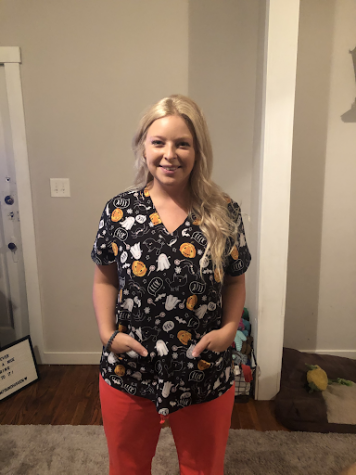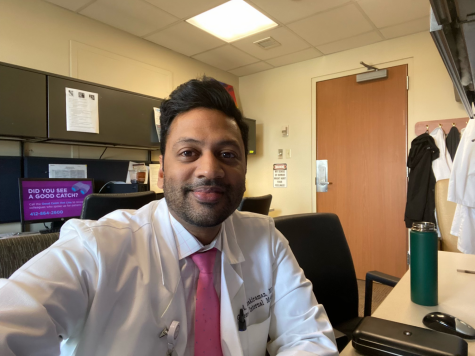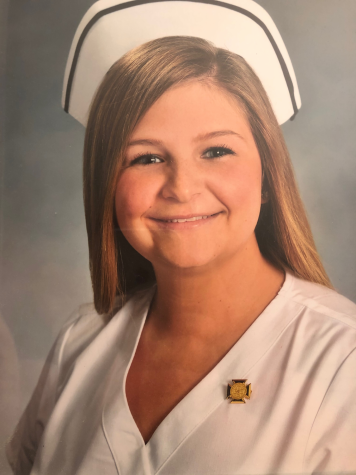COVID-19 From the Front Lines
NAEye News had the opportunity to speak to multiple healthcare workers about the current Pandemic. These healthcare professionals gave us the insight of their jobs.
From the front lines, over 7,000 health care workers have died from the exposure of Covid-19. Over seven thousand people have died while trying to save others, causing a crisis on a staggering scale. The problem continues, as we interviewed some of the healthcare workers who have put multiple hours of work in to keep people alive.

NAEye- What is your name?
AS- My name is Alexis Stem.
NAEye- Where do you work and what field do you specialize in?
AS- I work at children’s hospital in Pittsburgh and I specialize in neonatal ICU.
NAEye- When going into the hospital, what are the safety precautions?
AS- When entering we have to wear a mask to get into the building. Once we are in the building, down in the lobby we have to answer a series of questions including if we have a cough, if we have been exposed to covid without proper PPE. PPE is personal protective equipment. We also have a machine there that takes our temperature. Once you are cleared with no fever, you take a new mask and head up to your floor.
NAEye- Is it difficult having to change personal protective equipment as the day goes on? What do you do to help with this situation?
AS- Once we are given a mask when we enter the building, we don’t actually change it, we wear it throughout the whole day. We get one mask per day just to help save with limited supplies. So that is kind of difficult making sure your mask stays clean throughout the day. Gloves, things didn’t really change with that. Whenever you’re with a patient you change them if they get soiled or when leaving the room. The hard part for us now is we did not have to wear goggles when seeing a patient, but sometimes now if we’re suctioning a patient with those secretions, they want us to wear goggles for safety measures. The major change would be the goggles and knowing when to wear them.
NAEye- How did you feel working while everyone was quarantined?
AS- For me, it was meaningful. It felt good being out there and doing something. Now I wasn’t exactly on the front line because I worked with the babies. We didn’t have exposure to covid, although we worried about parents bringing it in, but it was meaningful to still have job security

NAEye- What is your name?
AJ- My name is Arun Janakiraman.
NAEye- Where do you work and what field do you specialize in?
AJ- I work at UPMC Presbyterian and I am an internal medicine physician.
NAEye- When going into the hospital, what are the safety precautions?
AJ- So when I enter the hospital, I wear a mask. Before I can actually set foot into the hospital somebody at the front door asks me questions- fever, chills, cough, shortness of breath, and exposure to coronavirus without that person wearing personal protective equipment. If you answer no to all of those questions, you then get a new surgical mask and your temperature is taken, If your temperature is normal you are able to enter the building, but you have a fever then you are either asked to be turned away from work or go to the emergency room.
NAEye- How do you feel when you have to be in the same room as someone with Covid-19?
AJ- At first, I was pretty nervous about it because it was so new and so unknown. Even as i was nervous i felt that i had the appropriate equipment to protect myself, but more importantly i had this duty to take care of.
NAEye- Is it difficult having to change personal protective equipment as the day goes on? What do you do to help with this situation?
AJ- SO at presby, they all go to one particular unit of the hospital. All of the patients on that floor have covid, whether they have a lot of symptoms or no symptoms at all. We see these patients on a daily basis and take care of what needs that they have. Some of them are pretty sick and have a lot of respiratory problems, whereas some of them don’t have any problems.
NAEye- What is the most stressful about being on the front line and having the risk of being exposed?
AJ- For me the most stressful part is exposing my friends and family, knowing that I have been in contact with people with covid. So I get nervous about putting my friends and family at risk as well.
NAEye- Is it difficult having to change personal protective equipment as the day goes on?
AJ- I have to wear my surgical mask throughout the day and it does get to be a little cumbersome, so i try to take some breaks if i’m in my office by myself doing work. If the person I share my office with, we both sit at our desks and wear our masks just to be safe. It does get a little tiring to wear the masks all day long, but it is the new normal.
NAEye- How did you feel working while everyone was quarantined?
AJ- I actually didn’t mind working, i felt that if i wasn’t working i would be really bored. There wouldn’t be much else to do. Fortunately for me, I didn’t feel the same quarantine blues that other people felt.

NAEye- What is your name?
BR- Brittany Restori
NAEye- Where do you work and what field do you specialize in?
BR- I am a registered nurse and i work for umpc at a outpatient family medicine practice
NAEye- When going into the hospital, what are the safety precautions you take?
BR- So, everyday before we enter the building we have to do what we call CMI screening. So we have to take our temperatures and have to go online and put our names where we are working that and if we have any signs or symptoms of COVID like a sore throat or fever and if we do we are not permitted to enter the building. If not we are still good to enter the building and what we do when we come in mask and sign off on a paper saying we answered the CMI screening for the day.
NAEye- How do you feel when you have to be in the same room as someone who has COVID?
BR- I have been present in a room with someone who has had COVID at least 5 times now. Unfortunately, I did not know at the time that they had COVID but looking back on it I would say I didn’t feel any different. I went to nursing school to do this and to help those in need and right now everybody that has COVID or may have COVID can’t help themselves so I would just say I was doing my job. I was a little bit nervous knowing that I could have potentially been exposed and brought it back to my family but I was really just doing my job and thought nothing different of it.
NAEye- What is the first thing you do when someone comes in that has been diagnosed with COVID?
BR- We try not to bring anyone into the clinic that may or may not have COVID. When we schedule our patients for appointments we ask a series of questions to find out if they have any symptoms of COVID. IF they do we do a telemed visit which is a video visit and every time a patient comes in we screen them at the front desk – we ask them if they have a sore throat, fever, cough, shortness of breath,and if they have been around anybody who has tested positive for COVID and we check their temperature.
NAEye- What is the most stressful part about being on the front line and having the risk of being exposed to COVID?
BR- I would say the biggest concern is bringing it back to my family and those who are at risk particularly my grandmother, kids, or some of my aunts. Other than that I am just doing my job.
NAEye- Is it difficult to change your personal protective equipment as the day goes on?
BR- No it is part of our daily process anyways. We wear a mask every day now the full 8 to 12 hours that we are on shift. The mask comes off so that something new but we don’t change it. As far as protective equipment otherwise goes we constantly are washing our hands and changing our gloves every time we go into a patient’s room.
NAEye- How did you feel working during quarantine?
BR- I felt honored. There were a lot of people who unfortunately lost their jobs and were not able to continue to go to work and I being in the healthcare field was able to continue to working, getting paid, and taking care of patients like I want to so I feel honored and blessed to keep working
Throughout quarantine for Covid-19, each healthcare worker and their family have had some concerns. Not only was each individual anxious about the possibility of returning covid to their family and friends, but there were positive outcomes through the chaos. The healthcare workers felt honored by the praise they received, but also felt as though they were doing their job. In realization, Covid- 19 has become a worldwide issue that is prolonging and will be dealt on a daily basis.
Uploaded here is a podcast that can be played to listen to personal experiences with Covid-19 from health care workers.Ella St.Myer is a sophomore at NAI and is new to the staff. She does competitive dance and has 2 sisters Sophia and Lila. Sophia is a junior and Lila is...
Mia Natoli is a sophomore at NAI. This is her first year on the NA Eye staff. She plays lacrosse and loves to write. Mia is a coffee addict.


